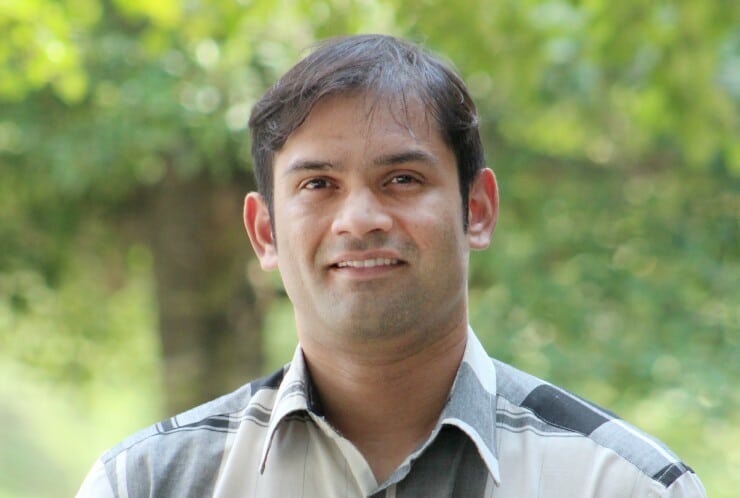
Dr. Vijay Antharam, an assistant professor of chemistry at Methodist University, was recently invited to speak at BIT’s 6th Annual International Congress of Medichem in Nanjing, China in November.
Dr. Vijay Antharam, an assistant professor of chemistry at Methodist University, was recently invited to speak at BIT’s 6th Annual International Congress of Medichem in Nanjing, China in November.
The congress attracts hundreds of scientists from around the world annually. This year, Antharam will have the opportunity to present one of his published papers to more than 300 scientists and professors, including three Nobel Prize Laureates.
“I published a paper after I began working here that correlated bacteria in the gut to cholesterol,” he said. “I was humbled when I read the email in July inviting me to speak because we had just published that paper in February.”
Antharam presented the paper, “An Integrated Metabolomic and Microbiome Analysis Identified Specific Gut Microbiota Associated with Fecal Cholesterol and Coprostanol in Clostridium difficile Infection,” during Methodist University’s Spring Faculty Research Symposium, which was part of a week-long event hosted by the University’s Center for Undergraduate Research and Creativity.
His paper explores the possibility of using good bacteria found in the gut to reduce cholesterol in the body.
“Everyone has good bacteria in their gut that break down cholesterol,” Antharam said. “Our bodies themselves can’t do it, but our gut can. The bacteria break the double bond turning cholesterol into cholestanol. There are a few prescription drugs on the market that lower cholesterol, but they come with serious side effects, like liver damage. This good bacteria may help formulate a new medicine that would come with fewer side effects because it would be more natural.”
High cholesterol levels are associated with several chronic illnesses including high blood pressure, diabetes, and heart disease – the leading cause of death in Americans today. If Antharam can isolate these good bacteria and put his theory to the test in a lab, his study could help cure or significantly lower the number of people who suffer from these diseases.
Antharam did much of the research for his paper while pursing his doctorate degree at the University of Florida. He took a position in the Chemistry Department at Methodist University in 2015, the same year he published his paper in PlosOne, a public library of science.
Antharam is excited to show his fellow scientists the correlations he’s discovered. He hopes interacting with scientists at the conference will aid in his search for grants that will help him put his theory to the test.
“Microbiome is a new frontier, and a lot of scientists are interested in it,” he said. “There are new developments every day, so I’m excited to share what I’ve learned.”